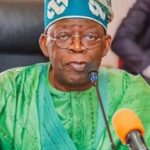[By Idowu Faleye: +2348132100608]
My preceding piece titled: “Fayemi’s Abandoned Projects and the Cost of His Ambition” sparked some heated debate. Some readers interpreted my analysis as anti-Fayemi; others saw it as supporting him. But amid the debate, one comment stood out: a reader urged me to objectively appraise all other Ekiti’s democratically elected governors since the beginning of the Fourth Republic. That challenge inspired this article—a look at the legacy of each governor, assessing their contributions and impact on Ekiti State.
“Legacy Project” represents more than just day-to-day governance or typical responsibilities like paying salaries or fixing roads; it’s a visionary project that distinguishes a governor’s tenure and resonates with the state long after the governor’s exit. This piece critically examines each governor’s personality, leadership styles, notable projects, and public perception, offering an insightful analysis of how these leaders have contributed to Ekiti’s development.
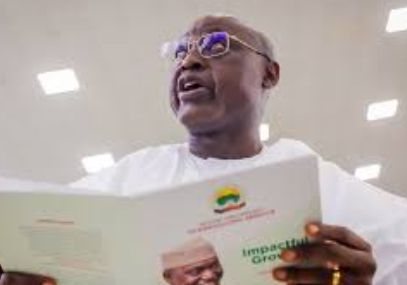
Since its creation in 1996, Ekiti State has experienced a range of leadership styles, with both military administrators and democratically elected governors influencing its development. However, the scope of this piece will be limited to the signature projects of civilian governors- what lasting legacies they have been able to leave behind, shaping Ekiti’s trajectory.
Otunba Niyi Adebayo, Ekiti State’s first civilian governor (1999-2003), brought a unique blend of gentility and calm to governance. As the son of a former governor of the old Western Region, he came from a privileged background and spent his formative years amidst affluence. A lawyer by education who didn’t actively practice; he simply didn’t need to. With his family’s wealth, he didn’t have to hustle or worry about financial pressures. This background profoundly shaped his personality—a mild-mannered, conservative leader who focused on administration rather than radical transformation.
Read Also: Governor Fayemi’s Abandoned Projects and the Cost of Ambition
Adebayo’s approach to governance was largely reserved and steady. He emphasized administrative stability over drastic policy shifts, seeking to build a foundation for the newly created state without stirring controversy. As a “gentleman governor,” his focus was on sustaining his high standard of living rather than pursuing ambitious projects.
Although Adebayo’s tenure lacked bold, groundbreaking projects, he left behind notable legacy structures, such as the Oju Olobun Government Liaison House in Lagos, the Governor’s Lodge, Gossy bottled water, and an uncompleted gigantic hotel that was disparaged to be a security risk because of its location and was converted to governor office by his successor.

Adebayo is remembered fondly for his calm demeanour and his steady, controversy-free leadership. However, his critics argue that his tenure had minimal impact on Ekiti’s economic or social transformation. While he may not have ushered in economic growth, his legacy rests on laying a stable foundation in Ekiti’s formative years which was dignified to be an enduring structure that symbolized stability and order.
Ayodele Fayose (2003-2006, 2014-2018), in contrast to Adebayo, was a self-made man who rose from humble beginnings. Known for his “streetwise” persona, Fayose hustled his way into office and was no stranger to facing challenges head-on. His charismatic and sometimes controversial approach made him a magnetic figure in Ekiti politics.
Read Also: Poor Service Delivery in Nigeria: Who Is to Be Blamed for Approving Substandard Projects?
Fayose’s governance style was assertive, unswerving, and often combative. He was unafraid to confront hostility and had a flair for populism. However, his tenure faced challenges due to political tensions and tragic incidents, including the unresolved deaths of prominent figures in Ekiti State. These events cast a shadow over his otherwise strong public appeal.
Despite controversies, he left behind a legacy of infrastructural beautification that became symbolic of his populist ethos. Fayose’s legacy projects are prominent and conspicuous. He is credited with building the Fajuyi flyover, dualizing major roads in the metro area, installing street lights, and constructing the New Oja-Oba market, Fayose Market, Fountain Hotel, and the new Governor’s Office.
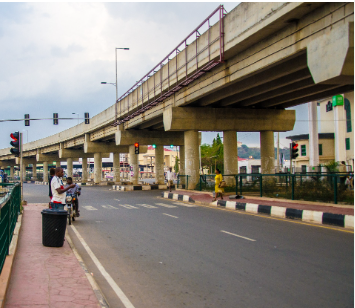
He focused on highly visible beautification projects, believing that upgrading the appearance of public spaces would boost morale and improve the state’s image. His projects, aimed at enhancing the visual appeal of the state, became emblematic of his leadership style: bold, visible, and for the people. Fayose enjoyed a substantial following among Ekiti’s populace due to his approachable style and relatable demeanour.
Engineer Segun Oni (2007-2010) brought a wealth of administrative experience to Ekiti’s leadership. His background in top management roles and his position at the Education Trust Fund endowed him with a knack for prudent fiscal management. Known for his modesty, Oni was less flashy than his predecessors but deeply focused on efficient governance.
Oni’s “laissez-faire” style allowed local governments and the state assembly considerable autonomy, which fostered an environment of independence. His fiscal prudence was evident in his careful management of the state’s resources, blocking financial leakages and ensuring prompt payments, especially to pensioners.
Oni’s most notable legacy projects include the construction of the State Secretariat buildings, addressing pension arrears, and developing rural roads. While these projects weren’t glamorous, they fulfilled critical needs, particularly for Ekiti’s rural communities.
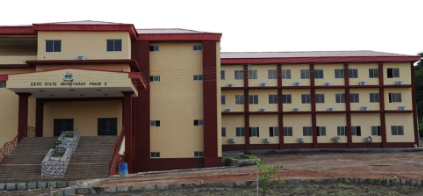
Oni is respected for his financial discipline and modest lifestyle, which set him apart as a leader committed to Ekiti’s welfare without seeking personal gain. Though his tenure lacked grandiose projects as a result of an election tribunal judgment that ousted him, his contributions were appreciated for addressing practical, everyday concerns.
A former pro-democracy activist, Dr. Kayode Fayemi (2010-2014, 2018-2022) brought a bold vision to Ekiti’s leadership. His background as a proponent of political reform influenced his ambitious, audacious approach, making him willing to embark on long-term projects that many considered risky but transformative.
Fayemi’s strategic mindset led him to pursue projects that exceeded the state’s immediate resources, often relying on partnerships with development organizations. This bold approach allowed him to start initiatives that would have otherwise been impossible, but it also opened him to criticism for not completing his laudable projects due to the diversion of resources and attention to his presidential ambition.
Among Fayemi’s numerous legacy projects are the Ekiti Knowledge Zone, the Ekiti Cargo Airport, the Pavillion, the Governor House, extensive water projects, and modernized schools. His tenure saw the completion of several abandoned projects of his predecessors and the resuscitation of moribund projects, signalling a commitment to continuity and long-term growth.

Fayemi is seen as a forward-thinking leader whose legacy is marked by visionary but financially taxing projects. While his supporters view him as a strategic thinker focused on long-term development, critics argue that his presidential ambition projects drained Ekiti’s resources. Nevertheless, his contributions have undeniably shaped the state’s future.
The present governor, Biodun Oyebanji’s extensive political experience prior to the creation of Ekiti State gives him a unique edge. Known for his grassroots connections, he has demonstrated a keen understanding of local terrain and is highly attuned to the community’s needs. His tenure is still young, making it too early for a full assessment.
Oyebanji’s approach is marked by a strategic grasp of Ekiti’s political landscape. His close connections with the various age segments in the state set him apart, allowing him to engage with diverse groups across the state.
As Oyebanji’s administration progresses, early indications show an effective strategy and political acumen. His approach reflects a deep understanding of Ekiti’s social and economic landscape, building on the foundations laid by his predecessors.
Oyebanji has garnered respect for his strategic competence and grassroots-oriented governance. Though I cannot define his legacy yet, his leadership has shown promise and stability.
All democratically elected Ekiti State’s governors have left distinctive marks on the state, each shaped by their background, personality, and unique approach to governance. From Adebayo’s calm stewardship and Fayose’s populist flair to Fayemi’s visionary projects and Oni’s fiscal prudence, Ekiti’s leadership history reveals a fascinating blend of styles and legacies. Oyebanji’s ongoing tenure continues to add to this complex narrative.
The personality differences among Ekiti’s governors have undeniably influenced their governance. As Ekiti looks toward its future, its past governors’ varied legacies serve as both lessons and inspirations for navigating the challenges and opportunities that lie ahead. These differences also underscore the importance of diverse leadership in addressing Ekiti’s evolving needs—a reminder that every leadership style, when authentically pursued, has the potential to leave a lasting impact on a given society.
Idowu Faleye:Ekiti-born Policy Analyst, IBM-certified Data Analyst, and Lead Analyst at EphraimHill Data Consult. Publisher of EphraimHill DataBlog, addressing topics of public interest. Reach him via WhatsApp at +2348132100608 or email ephraimhill01@gmail.com.
© 2024 EphraimHill DC. All rights reserved.



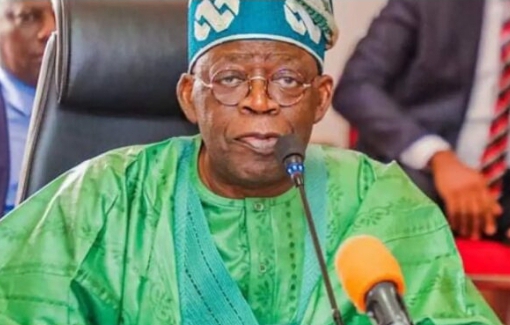







































![The Trend of Insecurity in Nigeria. [Part 2]](https://ephraimhilldc.com/wp-content/uploads/2024/09/Computer-Monitoring-of-Remote-areas.png)


































